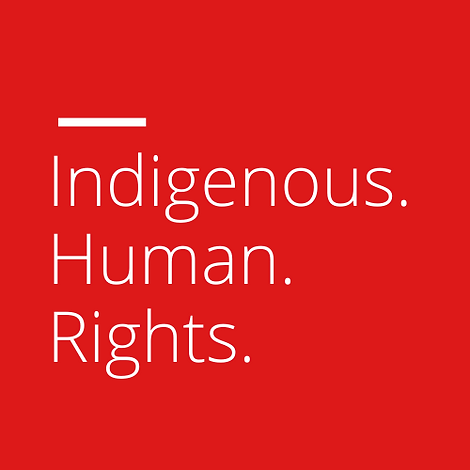
INDIGENOUS
PEOPLES
The Indigenous Human Rights Program is a partnership between PBSC and the Ontario Federation of Indigenous Friendship Centres (OFIFC). The purpose of the program is to combat anti-Indigenous racism and discrimination by working with Friendship Centres to build knowledge about human rights amongst urban Indigenous communities, and to empower individuals to make decisions about their rights. We do this through free human rights legal clinics located directly within Friendship Centres in Ontario, and the PBSC Indigenous Human Rights Podcast.
A first of its kind in Canada, the program is led by an Advisory Council and two Elders. It is supported by partners the Canadian Human Rights Commission, the Ontario Human Rights Commission, the Human Rights Legal Support Centre, and McCarthy Tétrault, and by the University of Ottawa Faculty of Law, the University of Toronto Faculty of Law, Osgoode Hall Law School, and Lakehead University Bora Laskin Faculty of Law.
The Indigenous Human Rights Program would not be possible without the generous support of its funders. In 2019, PBSC won the American College of Trial Lawyers' prestigious Emil Gumpert Award. These funds acted as seed money to develop the program and tackle an unexpected but necessary pivot to virtual legal services when the COVID-19 pandemic hit in March 2020. The Indigenous Human Rights Program was then generously funded by the Law Foundation of Ontario Access to Justice Fund during 2021-2022. Today, the Indigenous Human Rights Clinic at Odawa Native Friendship Centre is supported by a grant from the Community Grants Program - Ottawa Community Foundation.
URBAN
In Ontario, 85.5% of First Nation, Métis, and Inuit people live in urban or rural areas.
RACISM
In one study, 77.6% of respondents reported that racism against Indigenous people by non-Indigenous people is a problem in cities.
CULTURAL COMPETENCY
In order to advance the process of Canadian reconciliation, the TRC calls on lawyers and law students to be trained in inter-cultural competency, conflict resolution, human rights, and anti-racism.
CLINICS
We partner with Friendship Centres in the development, launch, and operation of Indigenous Human Rights Clinics. These Clinics, operated within participating Friendship Centres, provide free summary legal advice and information about human rights and discrimination to urban Indigenous communities.
The Clinics operated with and within the Odawa Native Friendship Centre and the Thunder Bay Indigenous Friendship Centre have completed their pilot operations, and they are currently under redevelopment for a planned relaunch of services in fall 2024. Please check back for updates as we near the relaunch.

Are you in need of legal advice, information or representation? Click here for resources.




PODCAST
The Indigenous Human Rights podcast is produced by Pro Bono Students Canada's Indigenous Human Rights Program. We're a group of law students shining a light on the experiences of Indigenous people at human rights tribunals across Canada. Listen and learn what it's really like to fight for your rights in the colonial legal system. Our podcast is sponsored by Thomson Reuters, PBSC's National Research Partner.
SEASON 2, EPISODE 3
Mr. C: Limitation periods at human rights tribunals
In our third episode of Season 2, we talk to lawyer Alanna Tom about her experience representing Mr. C, an Indigenous man, at the British Columbia Human Rights Tribunal. Mr. C filed his human rights complaint late but Ms. Tom was able to convince the tribunal to accept it. We talk to Ms. Tom about how she convinced the tribunal to accept the late filled complaint, limitations period at human rights tribunals across the country, the importance of meaningful access to justice, and why lawyers should cite research reports in their submissions!
Photo by Fallon Benson for PBSC National
55
students & lawyers trained
As a Cree law student interested in working with Indigenous communities, being part of the Indigenous Human Rights Program has been an incredibly valuable and rewarding experience. The cultural competency and human rights training, as well as the practical experience, have been my favorite parts so far. So many practical skills, like interviewing clients and trauma-informed lawyering practices, are not taught in a traditional law school class and I am especially grateful for the opportunity to learn and practice these skills in the context of Indigenous human rights.
- PBSC law student, University of Ottawa
200+
community members reached
User friendly was key. A quick summary of my issue was met with a thorough response. It was appreciated.
- Odawa Native Friendship Centre Indigenous Human Rights Clinic client, 2021
1500+
listeners
I believe that the podcast's greatest value is that it provides encouraging words for other Indigenous Peoples listening in. When I listen to each episode, I think of that person's courage and I'm inspired by their resiliency to stand up to those who discriminated against them. Their strength emboldens me to also stand up to racism. I believe the stories shared on the podcast are exemplary of our people's perseverance and they deserve to be heard.
- Indigenous Human Rights Podcast listener
FUNDERS
PARTNERS
ART BY MO THUNDER
.jpg)
Mo Thunder (They/Them/Theirs) is Onkwehonwe [Onyota’a:ka with family ties to Oneida Nation of the Thames x Aamjiwnaang First Nation] and French-Canadian. They’re a non-binary, neuroemergent artist x visual storyteller from a small town along the St. Clair River and are currently based on One Dish One Spoon Territory x Tkaronto (Toronto), which is a Kanyen'kéha: (Mohawk) word for ‘where there are trees standing in the water’.

CONTACT
To learn more or get involved, please contact
Jason Goodman.
Are you in need of legal advice, information or representation?






.png)


